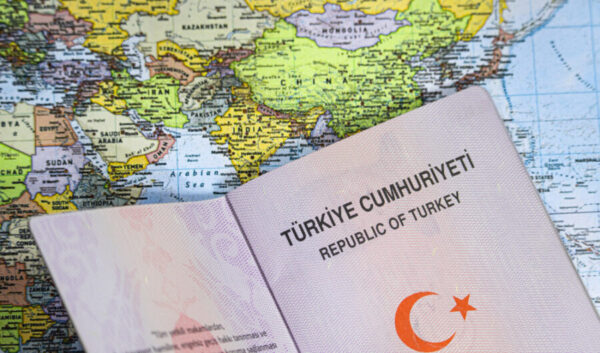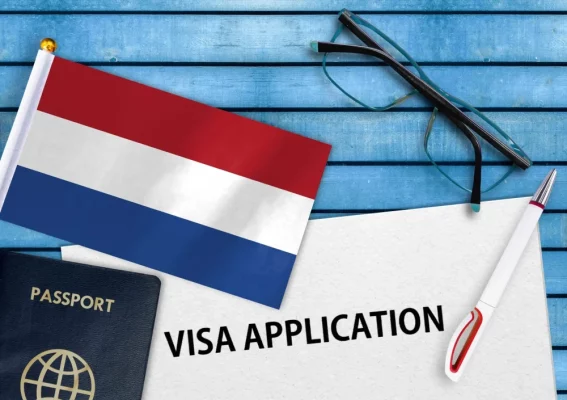Finding job opportunities in Europe has become a growing goal for many professionals, and Poland is often high on the list. Applying for a Poland work visa is a very important step for people who want to live and work legally in this dynamic and fast-developing country. With a strong economy, growing industries, and a demand for skilled workers, Poland welcomes foreign talent across various sectors.
The visa process may seem detailed, but with the right guidance, it is pretty easy. Requirements often include a valid job offer, supporting documents, and sometimes a labor market test. Poland’s central location and rich culture, coupled with a low cost of living, are major advantages for career starters and those looking to advance professionally. Here is what you need to know.
Who Needs a Poland Work Visa?
Anyone who is not an EU/EEA or Swiss citizen must obtain a visa to work in Poland. Citizens of the EU, EEA, or Switzerland who wish to work in Poland for more than three months need to register at a local registration office. Registering your stay informs Polish authorities that you want to remain and work in Poland for a long period of time; it is not the same as applying for a visa.
Types of Poland Work Visa
To apply for a work visa, you must first know which type of work permit you need. Types of work permits in Poland include:
1. Work Permit A
This is for foreign nationals working under contract with a company whose place of residence or registered office is in Poland. Businesses that hire foreign talent directly under a Polish employment contract must have this permit. It promotes the lawful hiring of non-EU nationals and guarantees adherence to Polish labor legislation.
The Type A work permit is the best option for businesses starting or growing operations in Poland that need specialized skills not easily found in the local labor market. Foreign nationals are granted this work visa on the condition that they will get a valid residency permit.
2. Work Permit B
If you work as a board member and want to stay in Poland for over six months, you must have this permit. Foreign nationals who serve on a Polish company's management board or handle its business are eligible for a Type B work permit. This permit is essential for organizations that hire foreign nationals in high management positions to ensure employment conforms with Polish regulations. This work authorization permit is ideal for startups or multinational companies setting up business in Poland and needing seasoned management to oversee operations.
3. Work Permit C
If you are assigned to work for a Polish branch of a foreign company for more than 30 days, this permit supports international operations and knowledge transfer by making it easier for employees from overseas branches to be temporarily assigned to Poland. It works best for multinational corporations that need to temporarily send staff to the Polish branch to conduct business.
4. Work Permit D
This is for you if you're sent to Poland to work in any export services by a foreign business. The foreign company must not have a branch in Poland. This permit ensures legal compliance for short-term assignments and facilitates international businesses' providing services in Poland without a physical presence. This work visa is ideal for global enterprises temporarily offering certain services in Poland without a permanent presence.
5. Work Permit S
The Type S work visa is for jobs in agriculture, tourism, horticulture, or hospitality. This permit is required for seasonal enterprises to hire foreign workers lawfully during peak periods. This kind of work visa is ideal for companies operating in sectors that need more temporary workers during peak times, like tourism during busy travel or agriculture during harvest seasons.
6. Type D National Visa
The Type D National Visa is a long-term Polish visa allowing non-EU citizens to stay in Poland for more than 90 days. It is mainly provided for employment purposes. This visa is required for enterprises that wish to hire non-EU individuals for a long time. It makes it easier to legally employ foreign labor while guaranteeing that Polish immigration laws are followed. The National Visa for Employment is ideal for businesses that need specific talents not commonly available in the local labor market, as it allows them to engage foreign specialists for long-term projects or positions.
7. Freelancer/Entrepreneur Visa
This visa allows non-EU nationals to start and run a business in Poland, enabling freelance or self-employment operations. Although this visa is mostly for independent contractors or freelancers, it can also help businesses looking to hire them for certain projects by confirming that the workers are licensed to work in Poland. With this visa, companies wishing to deal with independent contractors or freelancers from outside the EU can be sure that these specialists have the legal right to work in the country.
Documents Required for a Polish Work Visa Application
- A valid passport
- Poland work visa application form
- Flight itinerary
- Proof of accommodation
- Proof of travel health insurance
- Employment letter
- Police clearance certificate
- CV
- Original and a copy of the work permit
Depending on the particular circumstances, the Polish consulate or embassy could want additional documents from you, such as a cover letter for a Polish work visa.
Application Process for the Poland Work Visa
To apply for your Polish work visa, follow these steps:
1. Apply for a Poland Work Permit
If you intend to start work in Poland, your employer must apply for the work permit at the local Voivodeship office (Poland's Governor's Office) on your behalf. The employer needs to provide documents, including:
- The application form.
- Proof of paid application fees.
- Copy of the work contract.
- Deed for the company.
- Evidence of the legal status of the employer.
- Copy of the employee’s passport pages.
- Proof of the employee’s health insurance.
- Statements that show losses or profits made by the employer.
- Records of the employer’s economic activity.
Once the work permit has been approved, your employer will send it to you together with your work contract and any other necessary paperwork so you can apply for a work visa.
2. Apply for a Poland Work Visa
Once you obtain authorization to work in Poland, you can apply for the Poland work visa from the Polish Embassy/Consulate in your country. You can use this visa to enter Poland for work and subsequently apply for a temporary or permanent residency permit. To apply for a Polish work visa, do these:
1. Find the closest Polish Consulate or Embassy. Using the Polish consular services website, e-Konsulat, you can fill out an application form and choose which embassy to apply to.
2. Make a visa appointment. You can make an appointment by calling the embassy or consulate directly or using the e-Konsulat website. Make sure to schedule your appointment far enough in advance.
3. Collect the necessary documents.
4. Submit the application. On the date of your physical appointment, you must arrive on time, produce the needed documents, and (if necessary) attend a visa interview.
3. Go to Poland
Before you can enter Poland, you must present your documents to the border control, whether they are digital or physical. You have four days from the time you enter Poland to register your residency at the district office of the local municipal council. As soon as your address has been registered and you have a residence card, you can begin working.
Processing Time
Processing your work visa application by the Polish embassy/consulate could take up to six weeks. Because the Poland work visa is so important, it is recommended that you apply for it at least two months before your travel.
Poland Visa Fees
- Work period exceeding three months:$16
- Work period less than three months:$28
- Work Type D Permit: $50
If your company does not agree to sponsor your work visa, you will be responsible for paying for the visa yourself. The employer is not required to cover the employee's visa costs; however, most European firms do cover the work permit cost. For more details, be sure to get in touch with your employer. A residence card is required if you are not from Switzerland or an EU/EEA nation. The resident card costs €11 to get.
Extension of the Poland Work Visa
If your employer renews your contract, they could extend your Poland work visa. You must apply for an extension at least 30 days before your visa expires.
To extend your work permit, your company can apply online at praca.gov.pl or in person at the local Voivodship Office.
Conclusion
Securing a Poland work visa opens the door to valuable professional experience in a country that blends tradition with modern growth. With strong job prospects, affordable living, and access to the broader European market, Poland continues to attract talent worldwide. Understanding the visa process is key to starting your journey with confidence. Taking the proper steps can result in exciting opportunities and a fulfilling life in Poland.
















